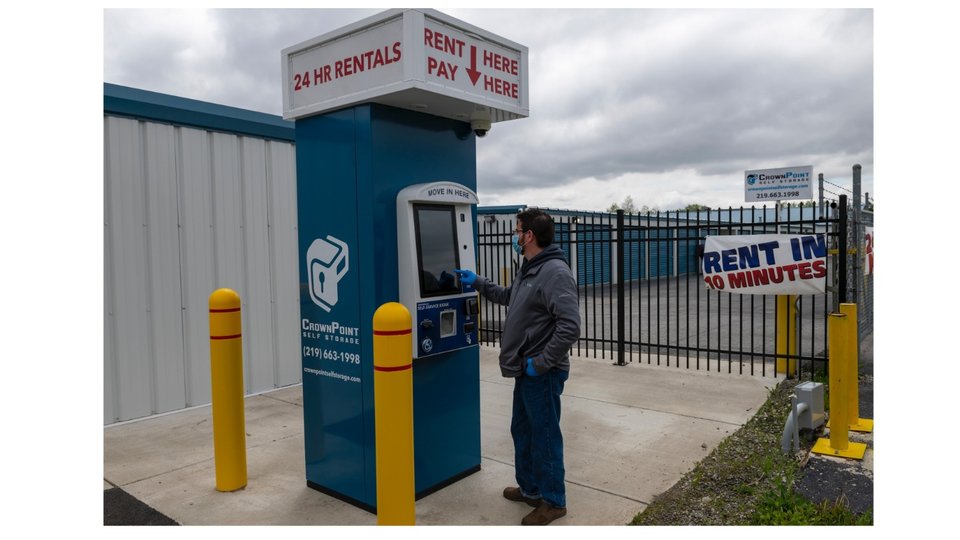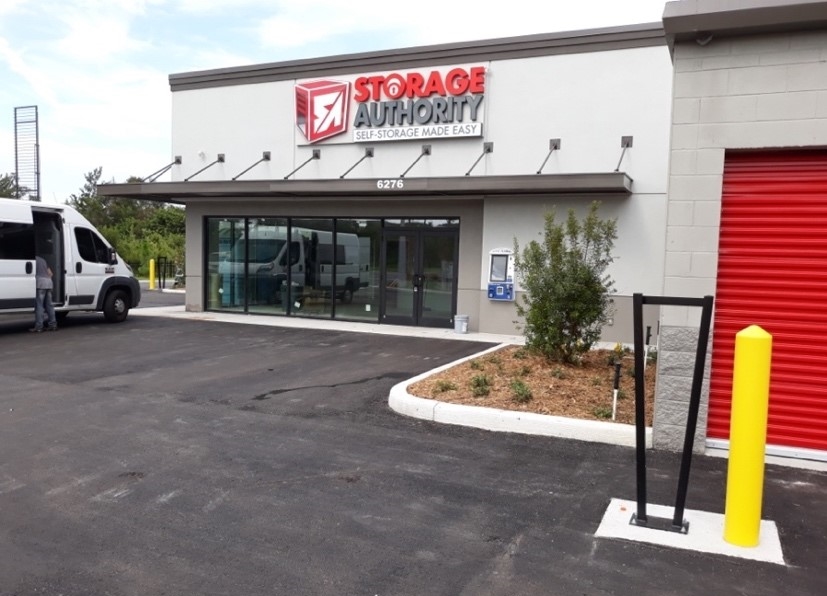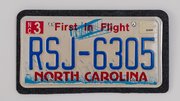Customer Experience
Self-serve kiosks help rental storage facilities serve a more mobile workforce
Rental storage facilities have long used self-serve kiosks for after hours customers, but automation is now playing a bigger role.

May 16, 2022 by Elliot Maras — Editor, Kiosk Marketplace & Vending Times
Traveling along major U.S. interstates, you're likely to see billboards advertising self-storage rental facilities. Should you stop in at one of these facilities, chances are greater than ever you can get information on storage availability and other details at a self-check-in kiosk.
As consumers have become more mobile in their lifestyles over the years, the need for self storage has expanded to a $48 billion industry, according to Mordor Intelligence, a research company.
The increasing rate of urbanization has been cited as a key driver in the growth of this market, which is projected to grow 5.45% annually through 2026.
 |
| Storage rental facilities such as Storage Authrority are facing labor challenges. Photo courtesy of Storage Authority. |
More recently, COVID-19 has led consumers and businesses alike to opt for self-storage, according to Mordor. The boost in working from home drove the demand as companies shifted toward a remote work model.
Pandemic fosters a moving boom
"COVID-19 has significantly increased the use of self storage by creating a moving boom," Marc Goodin, president of Sarasota, Florida based Storage Authority Franchising, noted in a recent interview with Kiosk Marketplace. "People moving are the number one users of self storage. Now people are moving back home at record rates and people are moving because many no longer have to commute to the office for work."
Rental storage facilities have long used self-serve kiosks for after hours customers, but according to Goodin, automation is now playing a bigger role.
"We are seeing an increase in automated self storage for several reasons," Goodin said. "Daily, people are becoming accustomed to the options technology creates. Now you can rent online, on the phone or from a facility kiosk 24/7. While most of the self-storage (units) are not unmanned, the number and the size of unmanned facilities are growing."
In addition, "COVID-19 helped the contactless rental surge as people got used to doing so much more on the internet, including renting self storage online," he said.
"The automated option is great for before and after hours, when the manager is helping another client or out sick," added Goodin. "Of course, a kiosk is a great emergency back up between managers when a manager suddenly quits.
"It can be as simple as automated emails or texts when a customer payment is late or as fun as the Storage Genie App on a renter's cell that will automatically open the access gate as they drive up and they did not even have to take their phone out of their pocket."
 |
| Marc Goodin |
Labor shortage impacts facilities
The labor shortage many companies are facing is also fueling the demand for unattended check-in at rental storage facilities.
Companies such as Goodin's face the same challenge finding labor that nearly all businesses are confronting, leading them to automated solutions.
The two main tasks a kiosk does is rent storage space and take payments, Goodin said. The kiosk software must interact directly to the management system so rentals and payment can be done in live time.
"If people have questions, the kiosk should be connected to a call center that can help the prospect," he said. "Some kiosks even distribute self-storage locks."
In addition to providing customers 24/7 access, self-check-in kiosks can serve as a customer support portals, offering FAQ guides or, for a more personal touch, voice-over IP and video teleconferencing. Kiosk screens also serve as a marketing tools, offering virtual tours of the storage facility.
Automated systems are especially important for facilities with less than 30,000 square feet, Goodin said.
Kiosk must be versatile
Self storage kiosks usually require a license scanner or camera to verify the customer's identity.
Those kiosks that allow customers to pay by credit card must have a card reader that can handle chip-enabled EMV credit cards.
If the business accepts cash, the kiosk will need a bill acceptor and recycler.
Self storage kiosks can be both outdoors or indoors, depending on the building's security needs.
Security more critical
Businesses that are operating with fewer on-site employees still need to keep their hard assets safe, which is yet another reason for the increasing demand for storage rental, said Matt Clark, director of Stor Safe, a North Kansas City, Kansas based rental facility.
Clark's company offers prospective clients remote access tours supported by motion activated surveillance.
Meanwhile, as labor costs have increased, automated check-in technology has become more cost efficient. Clark said self-storage technology, including kiosks and video surveillance systems, can be less than half the cost of a full-time employee.
Integrating kiosk software with management and security software is not usually an issue since most software offers application programming interface integration, said Clark. Integrated functions can include billing, collections, security, utilities, lighting, sales and marketing.
Head photo: LinkedIn.
About Elliot Maras
Elliot Maras is the editor of Kiosk Marketplace and Vending Times. He brings three decades covering unattended retail and commercial foodservice.
 ChatGPT
ChatGPT Grok
Grok Perplexity
Perplexity Claude
Claude










